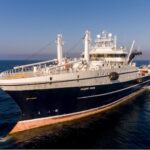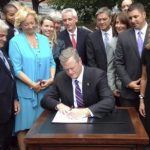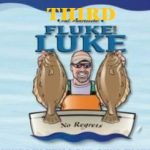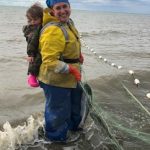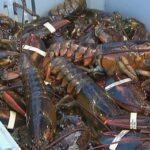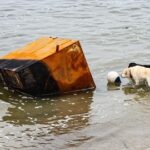FISH-NL accuses FFAW-Unifor of hypocrisy, preaching ‘fair access’ for inshore harvesters while squeezing them out
 FOR IMMEDIATE RELEASE Sept. 7th, 2017
FOR IMMEDIATE RELEASE Sept. 7th, 2017
The Federation of Independent Sea Harvesters of Newfoundland and Labrador (FISH-NL) accuses the FFAW-Unifor of hypocrisy for preaching “fair access” to adjacent resources for inshore harvesters while, in practice, squeezing them out.
“If the FFAW said the sun was splitting the rocks inshore harvesters would run for their oil clothes,” says Ryan Cleary, President of FISH-NL. “When it comes to the deck of a fishing boat the union’s credibility is non-existent.”
The FFAW-Unifor issued a news release earlier today announcing the formation of a new committee focused on securing “fair and reasonable” access for the inshore fleet to fish resources adjacent to the province’s shores. click here to read it
In particular, access to groundfish species such as greysole, turbot, redfish and American plaice, quotas for many of which are managed by the Northwest Atlantic Fisheries Organization (NAFO), which oversees fishing in international waters outside Canada’s 200-mile limit.
“NAFO is absolutely useless and toothless, but when was the last time you heard the FFAW point that out?” asks Cleary. “Probably the last time you heard the union critical of DFO management.”
Other examples of recent FFAW-Unifor hypocrisy include:
1) The FFAW-Unifor failed to take a stand earlier this year for inshore harvesters on the Great Northern Peninsula who are denied access to crab immediately off their shores, while harvesters from Quebec can fish there freely.
2) The FFAW-Unifor failed to take a stand over the fact that that while inshore harvesters off Newfoundland’s south coast have a zero per cent halibut bycatch, foreign trawlers operating in nearby NAFO waters can keep whatever halibut they haul in. One set of rules for inshore harvesters, and another set for foreign trawlers.
3) The FFAW-Unifor was silent in mid-July when the feds announced a redfish quota in the Gulf of St. Lawrence for the Qalipu First Nation — to be caught and processed by west coast businessman Bill Barry — when inshore harvesters are barely hanging on, and desperate for fish in light of severe cuts to quotas for species such as shrimp and crab.
4) The FFAW-Unifor — through the union-controlled Fisheries, Science, Stewardship, and Sustainability Board (FSSSB) — charges inshore harvesters operating in the Gulf of St. Lawrence (fishing zone 4R) for halibut tags. Inshore harvesters from the Maritimes and Quebec aren’t charged to catch halibut.
5) The FFAW-Unifor failed to condemn the late opening of this year’s turbot fishery, forcing harvesters out to sea during hurricane season, and when most of the turbot has already moved to shallow waters where they’re not allowed to fish
“How the FFAW-Unifor can expect praise for finally, after 47 years, considering inshore harvesters when it’s been beating them over the head for decades with blatant hypocrisy is beyond me,” said Cleary.
According to its release, the FFAW-Unifor working group will also try to “obtain investment in marketing and infrastructure needed to grow a fishing-based economy,” presumably referring to Ottawa’s $400-million fisheries fund.
“The FFAW is addicted to government money, and conflicts of interest,” says Cleary. “If only the union were as committed to inshore harvesters.
Contact: Ryan Cleary 682 4862

































